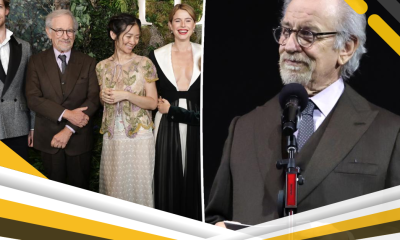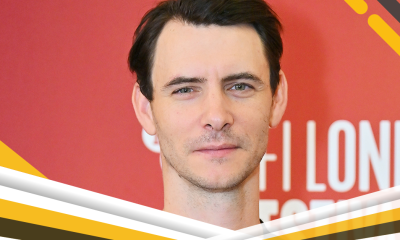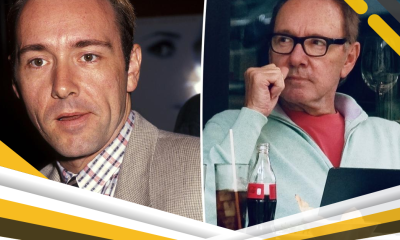Jennifer Lawrence Speaks Out: Male Actors ‘Punish’ You If You Reject Them

Jennifer Lawrence, one of Hollywood’s most prominent and outspoken actresses, has once again ignited a significant conversation within the entertainment industry and beyond. In a recent interview, Lawrence candidly discussed a troubling dynamic she believes exists in Hollywood, asserting that male actors can “punish” women who reject their advances. Her remarks have resonated with many, sparking renewed discussions about power imbalances, professional boundaries, and gender dynamics in the film industry.
The Context of Jennifer Lawrence’s Remarks
The acclaimed actress, known for her roles in films like “The Hunger Games” franchise and “Silver Linings Playbook,” made headlines with her revealing comments during a conversation that delved into her experiences navigating the complex social landscape of Hollywood. Lawrence reportedly articulated her observations about a subtle yet pervasive form of retaliation that women, particularly actresses, can face when they decline romantic or sexual overtures from male colleagues. She suggested that such rejections can lead to professional repercussions, implicitly or explicitly impacting a woman’s career trajectory.
This statement comes at a time when Hollywood continues to grapple with the aftermath of the #MeToo movement, which brought widespread attention to issues of sexual harassment and abuse of power. Lawrence’s comments underscore that beyond overt harassment, there are often more nuanced and insidious forms of professional retribution that can undermine women’s careers and create an uneven playing field.
Jennifer Lawrence’s Experiences in Hollywood
Throughout her career, Jennifer Lawrence has not shied away from discussing the challenges faced by women in the entertainment industry. She has previously spoken out about the gender pay gap, body image pressures, and the scrutiny faced by female public figures. Her current remarks about male actors punishing rejection appear to be a continuation of her broader advocacy for gender equality and safer, more equitable working environments.
While specific instances tied directly to her recent “punishment” comments were not detailed, her history of advocating for women’s rights and her willingness to challenge industry norms lend significant weight to her observations. Her ability to articulate these unspoken rules of engagement highlights a deeper understanding of the subtle power plays at work in high-stakes environments like Hollywood.
Reactions from Fans and Industry Figures
Jennifer Lawrence’s latest comments have prompted a range of reactions. Many fans and advocates for gender equality have lauded her for her bravery and honesty, seeing her statement as a validation of experiences many women have faced not just in Hollywood, but in various professional fields. Social media platforms have seen a surge of support, with individuals sharing their own stories and expressing gratitude for her willingness to speak out.
Within the industry, the reactions have been more varied. While some prominent figures have echoed Lawrence’s sentiments, acknowledging the systemic issues she highlights, others have remained silent or offered more measured responses. The discussion points to an ongoing internal reckoning within Hollywood, as it continues to confront its past and present practices regarding workplace conduct and power dynamics. The “Jennifer Lawrence male actors comment” has undeniably added another layer to this complex dialogue.
Broader Discussion: Gender Dynamics in the Film Industry
The issue Lawrence raises is not an isolated phenomenon but rather indicative of broader gender dynamics that have long plagued the film industry. Historically, Hollywood has been characterized by significant power imbalances, with men predominantly holding positions of authority in studios, production companies, and directing roles. This disparity in power can create an environment where women feel pressured to conform or fear professional setbacks if they challenge established norms or reject unwanted advances.
The “Jennifer Lawrence Hollywood sexism” narrative is an important reminder that while overt acts of harassment often grab headlines, the more subtle forms of discrimination and professional sabotage are equally damaging. These can include being passed over for roles, having ideas dismissed, or facing a general decline in opportunities following an interpersonal conflict or perceived slight related to personal boundaries. The conversation her remarks have spurred is crucial for moving towards a truly equitable and respectful working environment for all.
Conclusion
Jennifer Lawrence’s courageous statement about male actors potentially “punishing” women for rejection serves as a powerful catalyst for continued examination of gender dynamics in Hollywood. Her remarks not only highlight her personal observations but also reflect a pervasive issue that extends beyond the entertainment industry. As conversations around workplace respect, consent, and equality evolve, Lawrence’s willingness to speak candidly encourages further introspection and accountability, pushing for an industry where talent and professionalism are valued above all else, free from the shadow of unaddressed power imbalances.












